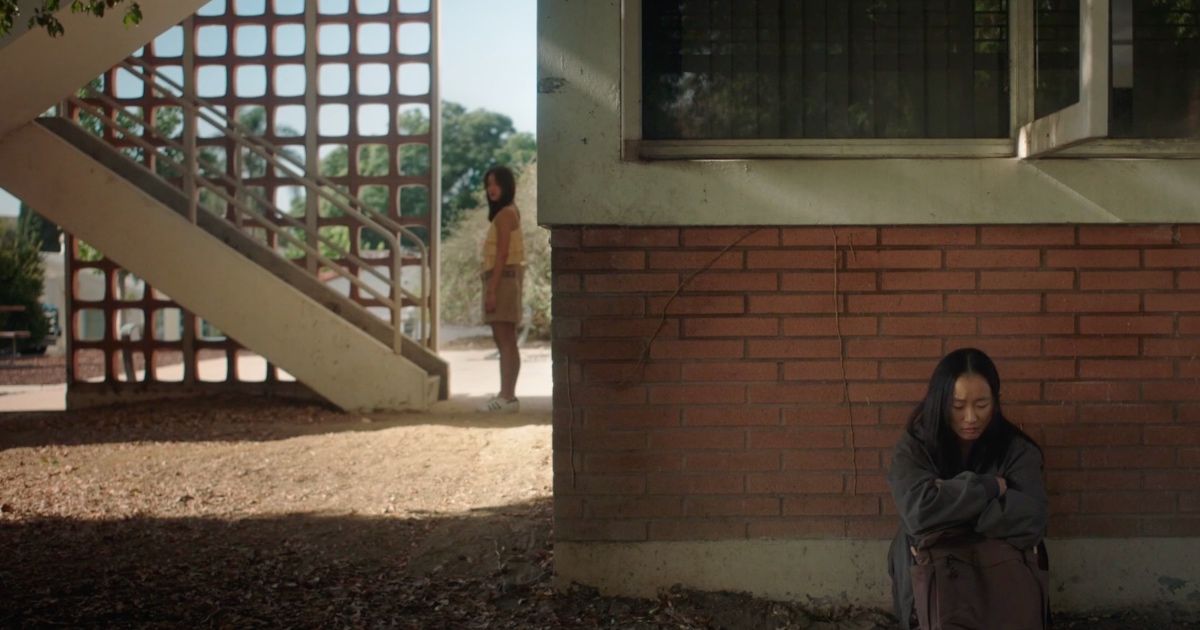In 2022, AT&T and Tribeca announced one film was going to be the winner of their AT&T Presents: Untold Stories opportunity. Out of five filmmakers and their movie ideas, only one was ultimately selected for the final award; the process is intended to give those from underrepresented backgrounds and stories funding to create a film. Titled Smoking Tigers, the director and writer, So Young Shelly Yo, and producer, Guo Guo, were given a million dollars to produce the film, which would be a feature-length movie. It would be given an opportunity so many filmmakers would dream of: a premiere at the Tribeca Film Festival and the possibility to be picked up by HBO Max, which has since been renamed Max in the years after this award was given.
MOVIEWEB VIDEO OF THE DAYSCROLL TO CONTINUE WITH CONTENT
Finally, nearly one year after its initial selection, on June 10, 2023, Smoking Tigers had its premiere at the Tribeca Film Festival. In an interview with The Hollywood Reporter, Yo described how the film came from personal experiences when comparing her family to her peers and feeling like they didn’t have enough. Smoking Tigers follows that storyline: its main character is a low-income Korean American who struggles with loneliness and feelings of comparison when it comes to other people at her local hagwon. While other girls her age have their bedrooms and a bed to themselves, she is forced to share a bed with her younger sister and feels shame because of her family’s circumstances.
A Tender Coming of Age Story
The protagonist of Smoking Tigers is Hayoung, a 16-year-old Korean American who grew up in Los Angeles. Her mother is a piano teacher who is struggling to find clients, and her father sells carpets. The family’s situation isn’t the best, as they cram into a small apartment together, which has increasingly become cramped for Hayoung, and her father is never at home anymore. She is also the only one who seems to put an effort in when it comes to connecting with her father, as her younger sister doesn’t even want to speak to him anymore. Hayoung’s mother, or eomma, is increasingly feeling distant from her, especially after she spends $3,000 to send Hayoung to a hagwon, or after-school tutoring academy, geared towards Korean Americans.
At first, Hayoung does not want to go to the hagwon. The haughty head teacher of the academy asks Hayoung where she wants to go to college, but when Hayoung says UCLA, she declares Hayoung needs to aim higher. Although Hayoung begins to make friends at the hagwon, hanging out with a fellow student named Rose, she feels a need to start hiding who she is. She’s embarrassed by the dingy home her family lives in, so she tells Rose she lives in the home one of her mother’s clients lives in.
Related: Milli Vanilli: Why You Don’t Want to Miss Out on This 2023 Tribeca Festival Documentary
This will create major problems for Hayoung later on, especially once she starts casually dating someone from the hagwon, Joon, and dives deeper into the world of those who have more money than her. But there are more immediate problems at home she needs to address, including her father’s increasing financial problems and how he no longer is answering her calls when she needs him the most. Suddenly, everything seems like it’s coming apart for Hayoung by the movie’s climax, leading to some revelations about what it means to grow up, reconcile with the people you love the most, and let go of those who no longer can help you on the journey of life. What her friends take for granted was something she wholeheartedly cherished, even if it meant she could only do so briefly.
One of the most endearing parts of Smoking Tigers’ story, however, is how it taps into the heart of Korean American diaspora culture. When Hayoung’s father wants to apologize to her and her sister, he goes out and buys jjajangmyeon and tangsuyuk. She attends a hagwon to get into elite colleges, even though that’s not what her heart wants, which is an import from South Korea’s competitive academic culture. With her mother, she ventures to a jjimjilbang, a Korean-style bathhouse and spa. At the heart of the story might be classic teenage conflicts between parents and friends and coming of age, but it comes from the heart.
There’s Beauty in the Details
Los Angeles is known as the city of lights, a place where people can come to start anew for themselves, and there are plenty of small details throughout the movie nodding to this legacy. As Hayoung goes out at night, discovering an entirely different world where her much wealthier classmates can party and drink alcohol without worrying about the financial costs of it, the overlay of lights makes them appear like stars, a guide to keeping Hayoung going even when it seems like all has been lost and she should give up. But in life, we’re given second chances, and that’s what Hayoung comes to realize by the movie’s end.
At the beginning of the movie, Hayoung is seen in a bathtub. This becomes a recurring motif throughout the film, as the original bathtub she’s seen in isn’t her own. It’s one of her father’s clients, who has money due to the nice home she owns. Later on, Hayoung becomes obsessed with a renovated house that’s about to go on the market for rent, but her mother shuts down the idea of moving because they can’t afford it. So when Hayoung is looking for somewhere to escape to at night, she ends up breaking into that home, reimagining what her life could look like if her family lived there. Again, the house’s bathtub shows up in some of these scenes.
For other scenes, the camera lingers in the background as an observer, angled in a way that feels like we, as the viewers, are gazing in on an intimate moment. Whether it’s Hayoung and her sister sitting in front of a pool of a client, their reflections rippling in the water, or a camera placed above the party happening below, it evokes a sensation making one feel like they’re trapped at the moment with Hayoung. Even as she quickly walks down a Koreatown street at night, wolf whistles happening behind her, there’s a sense of intimacy and also nostalgia. Smoking Tigers takes place in the 2000s, and its imagery is rooted in the time it’s set in as well. And maybe that’s a good thing in the long run–although the characters may have flip phones now, someone with Hayoung’s mentality might be concerning in the age of social media, especially on Instagram and TikTok.
Related: Why House of Hummingbird is the Korean Coming-of-Age Movie Everyone Needs to See Once
A Strong Debut Effort
One of the film’s weaker sides, however, is the nature of the dialogue. Although the interactions between the characters come across as natural, like Rose and Hayoung becoming friends originally because Hayoung slides over a pencil before a test, sometimes their interactions feel too stiff, the conversations a bit unnatural. But on the other side of the dialogue, the weaving together of Korean and English conversation makes the movie feel more genuine–for diaspora stories, there’s a forced integration of English into the dialogue oftentimes that isn’t reflective of most immigrant households.
This doesn’t happen in Smoking Tigers. Hayoung interacts with her parents in Korean and speaks English with her friends as they roll their eyes over their parents’ obsessions with their grades and academic performance. Too often when it comes to depictions of Asian American parents, especially mothers, English-language movies resort to the stereotype of the Tiger Mother. Smoking Tigers dispels these notions–for those like Hayoung’s mother, their child’s education is a way to escape the nature of being a low-income immigrant household in California. Although it may seem like a waste at first she is paying so much money for the hagwon, it’s seen as a vehicle for opportunity.
Smoking Tigers is a strong and exciting debut for an emerging filmmaker. Asian American individuals, particularly those of East Asian descent, often fit within the model minority stereotype inside American entertainment and media, but Smoking Tigers shows the other side of this conversation: the American Dream is still a reach for so many immigrants, and for youths growing up in these environments, it can create feelings of shame, isolation, and detachment from their peers in the same age group. A character like Hayoung isn’t alone in this world, and this becomes a subtle, but powerful form of representation for these kinds of stories.
Smoking Tigers had its premiere at the Tribeca Film Festival on June 10, 2023.
You can view the original article HERE.






























